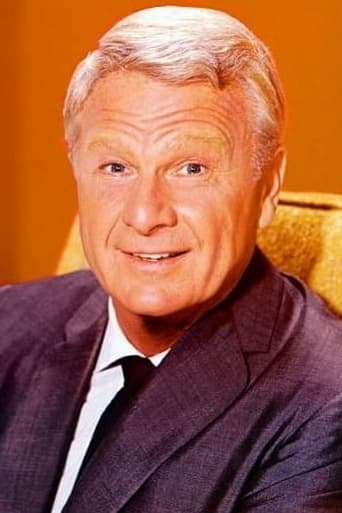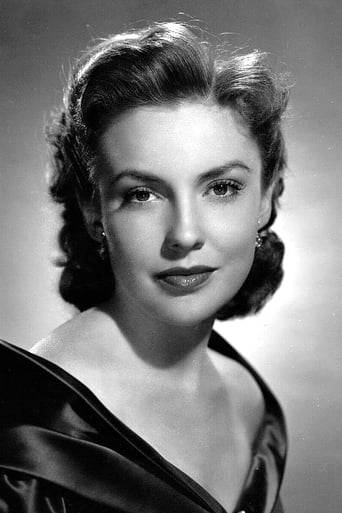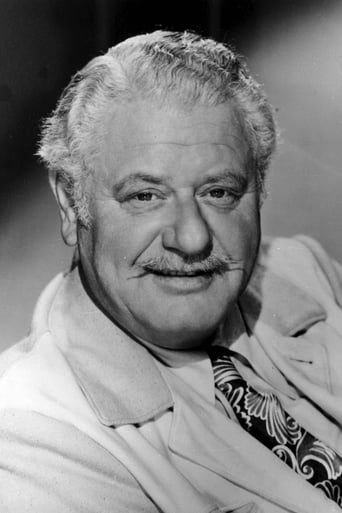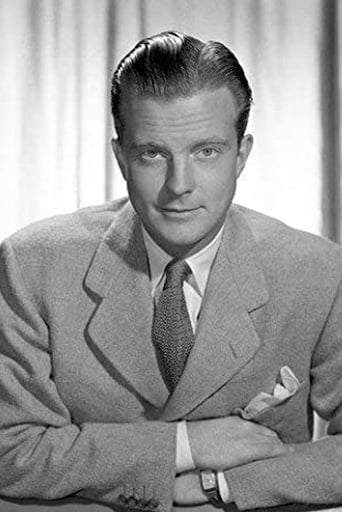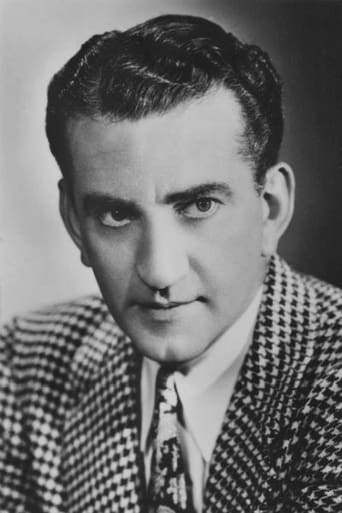KnotMissPriceless
Why so much hype?
Rijndri
Load of rubbish!!
Console
best movie i've ever seen.
Scarlet
The film never slows down or bores, plunging from one harrowing sequence to the next.
Gerold Firl
Mr. Nobody is an amusing allegory about the effect of different ethical systems. Dreamy Smith represents innocence and good intentions. In his relations to his close friend and love interest Mary Clover we see that his innocence has a downside: she wants to get closer, but he doesn't pick up on her hints. Her intentions are just as good as Dreamy's, but she is not innocent like him. She's constrained by her female social role, but she understands everything that's going on. She can't make a move on Dreamy or at work - she has to play it passive - but she's under no illusions. With his innocence comes a power that no other character has: a creative ability to generate ideas that generate value and meaning. His boss, John Wade, takes credit for Dreamy's ideas, and doesn't give him the bonus money he deserves. He lies to Dreamy about it, and Dreamy doesn't question him, but Clover tells him to man up.Meanwhile another character, Dreamy's roommate the Skipper, is trying to use him to buy a boat - the Viking - to go roving the seas. He's not a bad guy, but he is a user. Dreamy gives up his dream of sailing the seven seas to help a poor crippled kid and his family, and he's even willing to give up his love for Mary to get Limpy an operation to fix his foot. Finally when it seems like Dreamy is toast - his crooked boss Wade fires him from his job after taking credit for all his ideas - Mary steps up and forces Wade to hire him again. It's then that Dreamy commits one more act of senseless generosity: he jumps in the water to save Wade from drowning, though Dreamy can't swim. Wade has to save Dreamy from drowning. Dreamy's good heart compels the people around him to become better themselves. Mary does too, but to a lesser extent. She has to threaten Wade, but Dreamy does it by faith. The ending is a little odd: he is given an award for civil courage, and acclaimed by the people who took advantage of him before, and is about to claim Mary as his beloved, when he gets notice that he's been drafted into the army for WWII. Once again he treats it as a privilege - keep in mind this was 1941, and though the US wasn't in yet, it was widely believed that we would have to get involved before it was over.The power of Dreamy's innocence and good intentions warps the social network around him to make everyone else better. We see this at the personal level, but the ending sends the message that the US will also do this for global geopolitics by making sure WWII ends with the right side on top. A little propagandistic, but well- intentioned.
mark.waltz
Playing a role similar to the one he played opposite Lucille Ball in "The Fuller Brush Girl", Eddie Albert is the poster child for Mr. Wimp. He has a dream of being skipper on his own boat but is too scared to reach for his dreams and too manipulated by everybody to stand up for himself. He sets out to resign his job at a newspaper but his fear brings him back. But even at work, he's not appreciated. "Seems to me that there's an awful lot of mind reading going on around here", Albert tells his boss John Litel who seems to rely on his ideas to take credit for. "Got any million dollar ideas you want to give away? Tell Mr. Wade!", girlfriend Joan Leslie tells him, constantly reminding him of the ideas he's constantly giving away. Every time Albert tries to stand up for himself, either his good nature takes over him or somebody tells him he's doing it all wrong. This poor guy can't win, and as much as I like him, I wanted to take him by the shoulders and shake him.It's an O.K. comedy with little to recommend past the sitcom standards of the early 1950's and 60's. If I had a buddy like the overly chatty Alan Hale, I'd have to put in ear plugs because it seems like he never stops spouting unwanted advice. Then, there's his fiancée Joan Leslie who should be president of a club called "Future Nags of America". John Litel is his seemingly decent boss who takes total advantage of Albert's passive nature. Sweet Dickie Moore (just taken from our world a few days before his 90th birthday) is very likable as a handicapped kid who pals around with Albert and really seems to be the only one who respects him. A scene with a beggar being told off by Albert as he hands the poor guy a wad of cash is amusing and very true to life. I've actually seen people do that!The problem here is that the script is excruciatingly noisy and there isn't a moment to rest in the film's 70 minute running time. I really had to turn the volume down because it made me start to get a headache. It's an acceptable little programmer that probably offered some laughs as the bottom of the double bill, but really didn't do all that much for me. Even in the silliest (or noisiest) of the Leon Errol/Edgar Kennedy shorts, I wasn't as frazzled as I was when this one was over.
David (Handlinghandel)
This probably never figured high in Eddie Albert's resume. Indeed, at first I almost skipped it: The opening scenes with "Skipper" Alan Hale are most unpromising.(All scenes involving him pull the movie down, in fact.) But it is a very sweet tale, once given a chance. Albert plays newspaper clerk Dreamy, who is far too kind and honorable for his own good. The well-being of his charming girlfriend Joan Leslie also suffers.He allows his boss to steal his ideas and take credit for them. He helps out any of the downtrodden. Figuring most noticeably in this category is Limpy, the lame newspaper boy, played by Dickie Moore. He and his family are recipients of great, selfless kindness by Dreamy.It has a happy ending, though not a typical Hollywood ending: After Dreamy has been recognized for the hero he is, he is given some news that thrills him. Indeed, it could be seen as good news. But his final line is funny,ironic, a bit off-kilter, and very touching.
beegeebright
Although not really a comedy, it is certainly watchable on a rainy day. It has a cast that is excellent, you can see two faces of stars you know from TV, Alan Hale (Sr. who looks exactly like his son who was on Gilligan's Island) and Eddie Albert who was on Green Acres (and his son has done a number of things). Plot is thin and so idealistic it could never be made today. I mean Dickie Moore (now married to Jane Powell) plays a a paper boy called "Limpy". Oh, and Alan Hale is actually called Skipper! Really it's a walking trivia contest answer. Too frustrating to be fully satisfying, pathos rampant really. John Litel supports well and Joan Leslie is pretty in her usual vacant way.

